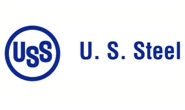Market Segment

November 14, 2019
U.S. Steel Commits to Lower Greenhouse Gas Emissions
Written by Sandy Williams
U.S. Steel announced on Wednesday a new target for reducing greenhouse gas emissions intensity. As part of its “best of both” strategy, U.S. Steel said it will reduce its global greenhouse gas emissions intensity 20 percent by 2030, based on 2018 baseline levels. Emissions intensity is measured by the rate of carbon dioxide equivalents emitted per ton of finished steel shipped. The goal will apply to the company’s global operations.
“Committing to a global greenhouse gas intensity reduction target is central to U.S. Steel’s strategy to become a world-competitive ‘best of both’ integrated and minimill steel company,” said U.S. Steel President CEO David Burritt. “These reductions will be equivalent to the amount of CO2 being generated by more than 850,000 average-sized homes each year. By creating targeted carbon reduction initiatives to accelerate our transformation toward a future of sustainable steel, we create value for all stakeholders.”
U.S. Steel plans to achieve its goal through the use of electric arc furnace steelmaking at Fairfield Works and at Big River Steel. U.S. Steel currently owns 49.9 percent of BRS and anticipates acquiring the rest within four years. EAF production uses recycled scrap steel to produce finished steel.
Further carbon intensity reductions are expected to come from the company’s introduction of state-of-the-art endless rolling and casting technology and construction of a cogeneration facility at its Mon Valley Works announced in May, as well as implementation of ongoing energy efficiency measures, continued use of renewable energy sources and other process improvements.
Kevin Zeik, Ph.D., senior research fellow of innovation at U.S. Steel said: “The carbon intensity reduction target announced today reflects our commitment to continuous improvement in production efficiency and builds on our industry-leading XG3 advanced high-strength steel. This technology enables automakers to manufacture lighter weight vehicles that meet federal Corporate Average Fuel Economy (CAFE) standards with reduced carbon emissions. As part of our innovation efforts, we continue to look at new steelmaking technologies including those that can further reduce carbon emissions as those technologies mature.”







